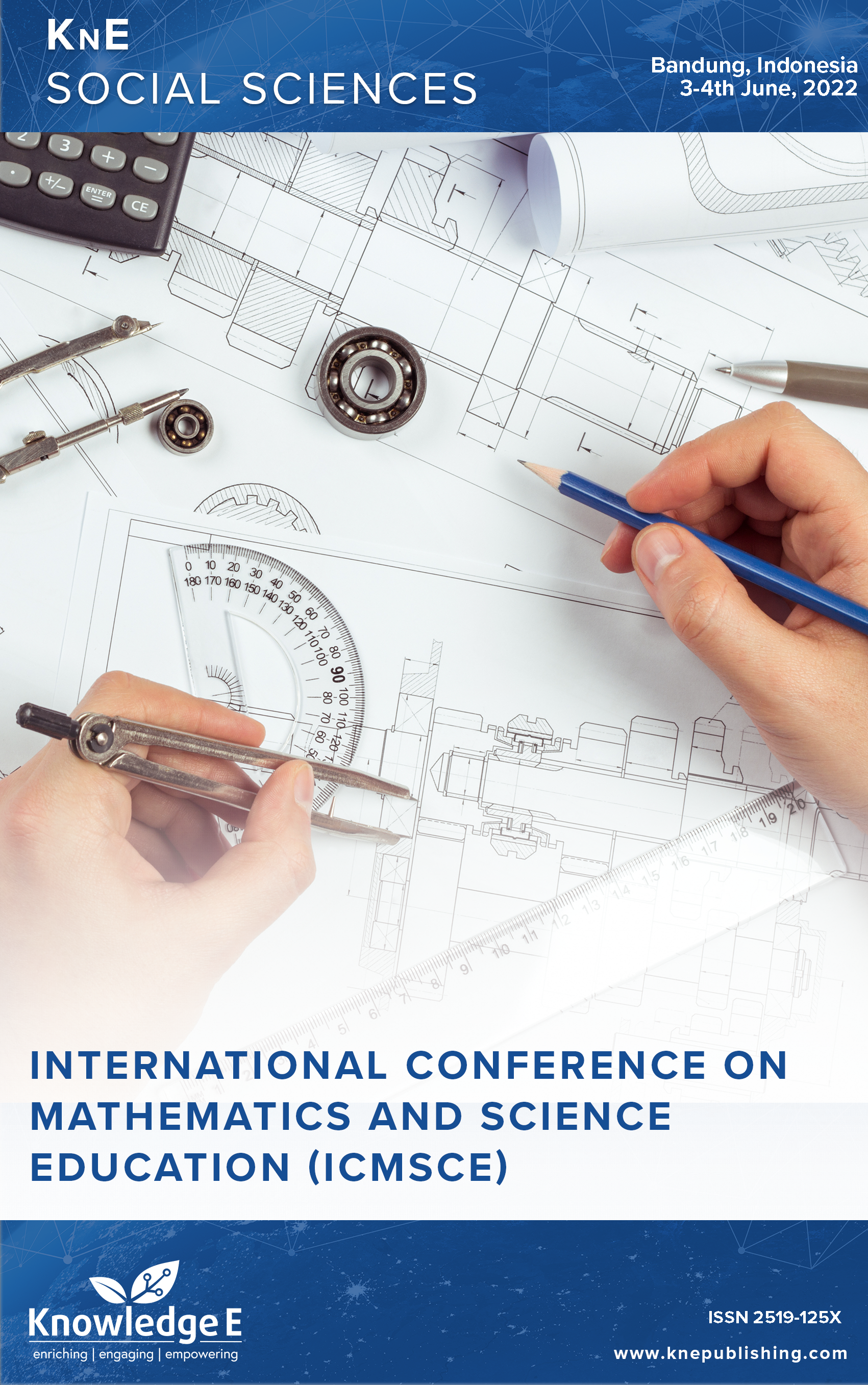Developing Science Edutainment for Prospective Science Teachers
DOI:
https://doi.org/10.18502/kss.v9i13.15992Abstract
Providing public knowledge about disasters can be done through integrated learning in science. This study aimed to determine the various needs for implementing science edutainment for science prospective science teachers. This study was a qualitative descriptive research. The subjects of the research were two lecturers who teach Disaster Mitigation courses and 67 students prospective science teachers in Banten who received lectures on Disaster Mitigation and BPBD Banten. Data was collected using non-test instruments through document analysis, questionnaires, and interviews, as well as qualitative descriptions for data analysis. With regard to various needs in the implementation of science edutainment disaster, the results showed the implementation of disaster education needs to be developed, especially involving relevant agencies such as BPBD to develop the empirical experience of prospective science teachers. Additionally, it needs to be integrated with practicum using modules by utilizing technology used in socialization and disaster risk management. Development of Disaster Mitigation modules needs to be carried out, especially modules that improve natural disaster literacy critical and creative thinking skills of prospective science teachers.
Keywords: Science Edutainment, Prospective, Science Teachers
References
Akerson VL, Abd-El-Khalick F, Lederman NG. Influence of a reflective explicit activitybased approach on elementary teachers’ conceptions of nature of science. J Res Sci Teach. 2000;37(4):295–317. DOI: https://doi.org/10.1002/(SICI)1098-2736(200004)37:4<295::AID-TEA2>3.3.CO;2-U
Roth KJ, Wilson CD, Taylor JA, Stuhlsatz MA, Hvidsten C. Comparing the effects of analysis-of-practice and content-based professional development on teacher and student outcomes in science. Am Educ Res J. 2019 Aug;56(4):1217–53. DOI: https://doi.org/10.3102/0002831218814759
Southerland SA, Granger EM, Hughes R, Enderle P, Ke F, Roseler K, et al. Essential aspects of science teacher professional development [p.]. AERA Open. 2016 Oct;2(4). https://doi.org/10.1177/2332858416674200. DOI: https://doi.org/10.1177/2332858416674200
Doraiswamy N, Porter KM, Wilson G, Paprzycki P, Czerniak CM, Tuttle N, et al. Development and validation of an instrument to assess teacher leadership behaviorsin a math–science partnership program. J Sch Leadersh. 2016;26(5):726–55. DOI: https://doi.org/10.1177/105268461602600501
BNPB, Indeks risiko bencana Indonesia (IRBI) tahun 2020. 2021.
Vhurumuku E. The impact of explicit instruction on undergraduate students’ understanding of the nature of science. African Journal of Research in Mathematics, Science and Technology Education. 2010;14(1):99–111. DOI: https://doi.org/10.1080/10288457.2010.10740676
Kitagawa K. Conceptualising ‘disaster education. Education Sciences. 2021;11(5). https://doi.org/10.3390/educsci11050233. DOI: https://doi.org/10.3390/educsci11050233
Shoji M, Takafuji Y, Harada T. Behavioral impact of disaster education: evidence from a dance-based program in Indonesia. Int J Disaster Risk Reduct. 2020;45( January): 101489. DOI: https://doi.org/10.1016/j.ijdrr.2020.101489
Paul JD, Bee E, Budimir M. Mobile phone technologies for disaster risk reduction. Climate Risk Management. 2021;32(December):100296. https://doi.org/10.1016/j.crm.2021.100296. DOI: https://doi.org/10.1016/j.crm.2021.100296
Troussas C, Krouska A, Sgouropoulou C. Collaboration and fuzzy-modeled personalization for mobile game-based learning in higher education. Computers and Education. 2020;144(September):103698. https://doi.org/10.1016/j.compedu.2019.103698. DOI: https://doi.org/10.1016/j.compedu.2019.103698
Weyrich P, Ruin I, Terti G, Scolobig A. Using serious games to evaluate the potential of social media information in early warning disaster management. Int J Disaster Risk Reduct. 2021;56(February):102053. DOI: https://doi.org/10.1016/j.ijdrr.2021.102053
Niemann P, Bittner L, Schrögel P, Hauser C. Science slams as edutainment: A reception study. Media Commun. 2020;8(1):177–90. DOI: https://doi.org/10.17645/mac.v8i1.2459
Grady C, Iannantuoni A, Winters MS. Influencing the means but not the ends: the role of entertainment-education interventions in development. World Dev. 2021;138:105200. DOI: https://doi.org/10.1016/j.worlddev.2020.105200
Jayne J. Incorporation of edutainment into intervention and evaluation: The Jump with Jill ( JWJ) program. Front Public Health. 2019 Jun;7( JUN):163. DOI: https://doi.org/10.3389/fpubh.2019.00163
Ong C, Araral E. Using a serious digital game to communicate drought risk in Singapore: An experimental study. Environment and Behavior. 2021:1-37. DOI: https://doi.org/10.1177/00139165211031197
Elteir MK, Lazem S, Azab M. Unleashing the hidden powers of low-cost IoT boards: GPU-based edutainment case study. Journal of King Saud University - Computer and Information Sciences. 2020: 1-10.
Piaw CY. Establishing a brain styles test: the YBRAINS test. Procedia Soc Behav Sci. 2011;15:4019–27. DOI: https://doi.org/10.1016/j.sbspro.2011.04.407
Gatti L, Ulrich M, Seele P. Education for sustainable development through business simulation games: an exploratory study of sustainability gamification and its effects on students’ learning outcomes. J Clean Prod. 2019;207:667–78. DOI: https://doi.org/10.1016/j.jclepro.2018.09.130
Piawa CY. Building a test to assess creative and critical thinking simultaneously. Procedia Soc Behav Sci. 2010;2(2):551–9. DOI: https://doi.org/10.1016/j.sbspro.2010.03.062
Graham O, Edwards S, Robertson R. More than a warning: Expanding the role of communication in Eastern Caribbean Volcano Science. Frontiers in Earth Science. 2022;10.. DOI: https://doi.org/10.3389/feart.2022.907559

